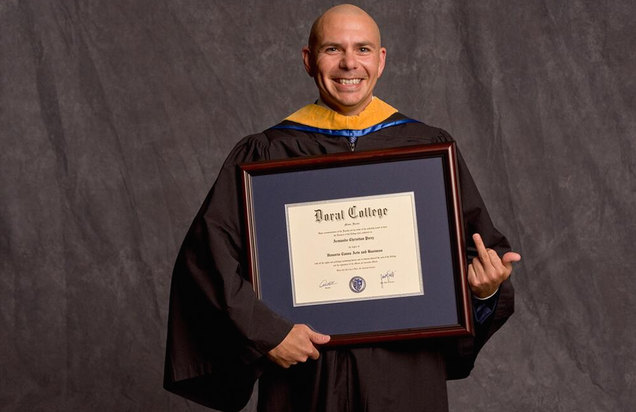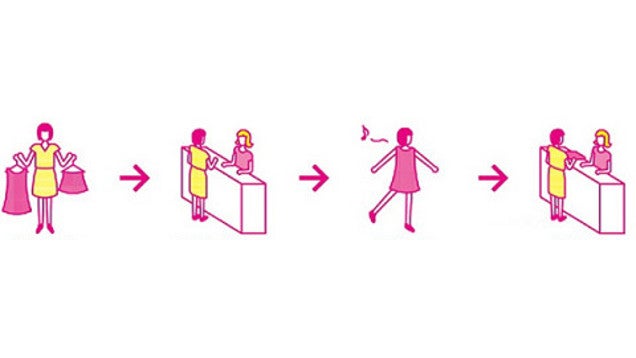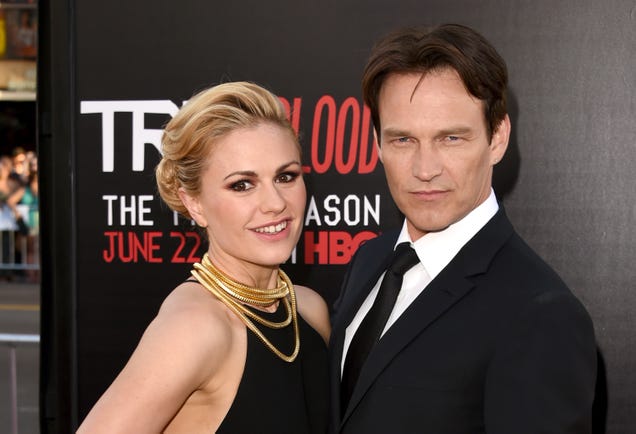![Q&A with Larry Lessig on Why You Should Have Faith in Silicon Valley]()
The story of how a young programmer named Aaron Swartz convinced celebrated academic Lawrence Lessig that no political progress could be made without first reforming campaign finance is now part of Silicon Valley lore. In May, Lessig launched a radical initiative to address the issue: MAYDAY, a SuperPAC that secured funding from two Silicon Valley billionaires in order to curtail the influence of big money.
Those billionaire investors, Peter Thiel and Reid Hoffman, only represent one tier of MAYDAY's donors. First $1.1 million was raised online, Kickstarter style, from ordinary voters. Then Lessig convinced tech industry insiders—including Kickstarter investors Fred Wilson and Brad Burnham from Union Square Ventures—to match. MAYDAY's plan is to get pro-finance reform candidates elected in five key congressional races. After raising that first million in two weeks, Lessig thinks he can get to $12 million using the same combination of the disempowered and the powerful
Lessig, a Harvard Law professor and director of the Edmond J. Safra Center for Ethics at Harvard University, spoke with Valleywag earlier this week about why he has faith in Silicon Valley (for now), the problem with the tech industry's previous inroads into politics, and why there's nothing inconsistent about Thiel's approach to politics.
In the video on the MAYDAY homepage you mention combatting the influence of billionaires, but two of your big supporters from that tier are billionaires themselves.
What's deceptive about these billionaires is that they're spending their money—if we're successful—to reduce the influence that they have in our political system. If we can win, they'll be less powerful than they are right now. And I think that's an admirable thing for them and I hope to recruit more to exactly that ideal.
Thiel, for example, on OpenSecrets was ranked no. 9 in terms of individuals who spent their money to influence the 2012 election. He spent more than $4.7 million and for that election cycle he's closely associated with propping up Rand Paul's campaign. He said he did that with an eye to building a libertarian base for 2016. It's an odd choice for somebody to want to reduce the influence of people basically like himself.
I don't believe in unilateral disarmament. We live in a system where money has an extraordinary amount of influence and if you're trying to bring about certain political agendas, money is the means. There's nothing inconsistent with recognizing that and also wanting a political system where money wasn't a means. Tom Steyer [a billionaire hedge fund manager and environmentalist] is spending more than $50 million to bring about climate change legislation. He's doing that because he believes it's a necessary thing to do in order to get climate change legislation in a world where on the other side companies that are making $100 billion in profit every year are spending whatever they can to [derail] climate change legislation.
More and more people are seeing this—that they would rather live in the world where that wasn't the game. You can affect the world as it is and also kind of bring about a change to the world as it is.
You're saying MAYDAY is the voice of the people, but Thiel was backing a candidate who would not have otherwise succeeded by popular vote. That seems to be an inconsistency between the objectives of MAYDAY and Thiel's personal objectives.
I just don't see it. If you imagine what the new system for electing candidates would look like—it's not a system where there isn't any money in the system, it's just a system where the money to fuel the system comes differently. So, in a new world, who knows how Rand Paul does? I don't know. I mean, he wouldn't be my first choice.
In a new world, who knows how Rand Paul does? I don't know. I mean, he wouldn't be my first choice.
But I think one of the most important things is to talk about a movement where we can bring together people who have fundamentally different views about who their first choice for president should be. They just have a common view about existing corruption in the current system. It's kind of important to distinguish between the issue as it relates to the President and the issue as it relates to Congress, which is of course the primary policy making body.
It makes me sick to imagine the amount of time [presidential candidates] spend raising money, but the institutional [issue] we have to do something about quite dramatically is Congress. Because Congress is increasingly an institution that spends all of its time in the business of raising money as opposed to the business of trying to figure out what the right thing to do is.
You mentioned bringing together a diverse coalition. The other billionaire supporter of MAYDAY is Reid Hoffman, who like Thiel made money off of Facebook. If you look at his donations last year, for example, they all went to Cory Booker and Sean Eldridge who have direct ties to Facebook.
What's the mechanism you're imagining here? If MAYDAY PAC is successful at reducing the influence of money and politics then Reid and Facebook and the others don't have as much power as they have right now. So what's the self-interested motive that might be going on here?
Well, you said it's bringing together a diverse coalition and it seems like from the big supporters, it's a lot of Silicon Valley, it's a lot of tech players—Union Square Ventures. How do you prevent them from having an outsize influence in MAYDAY PAC?
That's a great question. So one of the most important things we've done is we've separated the board, which has the ultimate policy decisions, from the funders. It's a unique board opportunity—you're not allowed to be a funder. So none of the big funders are going to be board members, that's number one. Number two, MAYDAY PAC is not a political party. It's not a president, it's not a policy maker, it's got a very precise objective. Its objective is not to argue for H1-B Visas or different treatment for stock options, its single objective is to bring about in 2016 a Congress committed to fundamental reform.
They hate the way they're shaken down by politicians who come out to Silicon Valley and pretend they want to talk about patent policy, when they're really talking about their next fundraiser.
I saw this piece in The New Republic by Noam Scheiber about Silicon Valley and the MAYDAY PAC and it is true, I think. I spent nine years in Silicon Valley when I was teaching at Stanford and it is true that Silicon Valley has a distinctive view about the way that Washington works or, more precisely, the way that Washington doesn't work. Both liberals and conservatives, or libertarians out there, look at Washington and say it's a hotbed of crony capitalism or corruption and they hate the way the system works. They hate the way they're shaken down by politicians who come out to Silicon Valley and pretend they want to talk about patent policy, when they're really talking about their next fundraiser. Noam makes this point quite powerfully that there is this unique moment where Silicon Valley has both the means and the motive to try to bring about a change in the way that Washington works.
Right, but we've seen with FWD.us that there was a potential to wield their influence positively—like you said, they have the power and the money right now—but it seems, at least with FWD.us, to be fairly self-serving.
Absolutely. Let's be very clear about it. I think that's one of the most important criticisms of FWD.us. I actually know some of the people who were involved in pushing that and I know them to be genuine believers in what they were pushing, but they were not sensitive to the way it appeared to everybody: that what they were pushing was an agenda about benefitting them.
But, again, in the political system we've got right now that's not unusual. We got all sorts of examples of people pushing a political agenda that benefits them. On the left and the right.
I'm curious about the amount of money being funneled from Silicon Valley into politics. For example, Brigade Media, Sean Parker's venture, was recently in the press. They use some of the same rhetoric as MAYDAY in terms of "restoring" democracy. If you're used to tech companies, it's familiar. But it's hard to picture what Brigade is going to do.
Well I agree, I don't quite know what Brigade is going to do yet. I'm very much a believer in clear theories of change. Tell me what you're going to do that's going to change the way the system is actually going to work.
So with MAYDAY, we've been as clear as we could possibly be about this. We want to change the way elections are funded. If we had a world of small dollar-funded elections, the billionaires would have less influence.
I don't think it's an adequate theory of change to say we've got a better way for people to click through to their Congressman.
I haven't seen what the Brigade model is, but I don't think it's an adequate theory of change to say we've got a better way for people to click through to their Congressman and tell them their views about the latest legislation coming up. I'm a skeptic by training, that's my job.
As you said, there are certainly much larger, much scarier industries and companies who are trying to influence the American political system. But with the ascendance of tech, what you would tell other skeptics who are worried that it's going to end up the same way. Or do you have a sense of optimism that maybe Silicon Valley will bring about a change that's actually in line with this kind of vague rhetoric that they use?
Well I think its important to flesh out the vague rhetoric and I get frustrated with the vague rhetoric as well. And No. 2, I don't have faith in Silicon Valley because it's Silicon Valley. I have faith in Silicon Valley because of the stage they are at in the innovation cycle of any great industry or any great corporation.
I don't have faith in Silicon Valley because it's Silicon Valley. I have faith in Silicon Valley because of the stage they are at in the innovation cycle.
If you look at the history of companies in fields of innovation, in early stage they're all struggling to compete, then they become ascendant and they're interested in just building out their business in the most successful way. Once they crest, then the lobbyists come in and they say, "We can actually get you a higher percentage return if you give us the money to go get some special tax deals" or "Give us the money to get some special protection against competition."
The point is, eventually, I'm quite sure that these great successful corporations will behave like every other corporation in the history of corporate America. There's nothing in the water of Silicon Valley that guarantees that they remain virtuous. Right now they don't have the incentive because they don't have a business model that turns on controlling Washington. They have a business model that's about innovation.
One of the people that's kind of inspired me the most about this is Brad Burnham [from Union Square Ventures]. If you look at his portfolio of investments, they've all been about crowd-sourced or crowd-pushed bottom-up innovation in the context of social media and all sorts of other types of technologies. The thing that's striking when you listen to him about the problem innovators face: the problem is this non-neutral platform that our policy makers in Washington create.
It's kind of like net neutrality brought to politics. What they want is a kind of political system the way the Net is supposed to function, which is an open neutral network—to put ideas out there in a democratic way, as opposed to a special privilege from telecom operator way. You get to prove which ideas should win. When I talk to people like that about, 'What do you think it's going to be like in 20 years? Or even 10 years!'—since Internet speed is much quicker—nobody really believes that there's a reason why these people will behave in the right way going forever.
It's quite an astonishing display of market power muscle, which is not the image of ... this upstart Internet venture that makes it possible for people to get everything in one click.
Look at Amazon right now. I mean this whole fight with Hachette books. It's quite an astonishing display of market power muscle, which is not the image of what we would have thought of five years ago or 10 years ago—the way this upstart Internet venture that makes it possible for people to get everything in one click. But it kind of makes sense, given their dominant market power right now. I don't love these companies versus other companies. I love companies at the stage of their development where they're focused on innovation. In a large field, between cable operators and Silicon Valley, I'll take Silicon Valley.
I think you can see this in Union Square Ventures portfolio, certainly with companies like Kickstarter. But there is another stronger, very well-funded contingent like Uber and Airbnb. Uber was recently valued at $18 billion and it is going through the same trajectory of being innovative at first and now becoming a dominant player. They very much need regulation on their side.
Let's be very clear about what Uber needs. Uber needs the freedom to compete and they're up against regulatory structures which basically hand out the right to compete. I'm an Uber user, but I have no particular expertise here. The dynamic I've seen is they've gone into market where there's a regulated market and they're saying de-regulate. Give us the same right to compete as anybody else.
It's about building a regulatory environment which is open. They're not coming in and saying let only Uber compete. They can't (consistent with what they're doing) say anything other than: 'Just have a lot more competition here. The world has changed, we don't need to hand out taxi medallions to 12 people and expect that takes care of everything.'
Airbnb is the same thing. This is arguing that we ought to be moving to a less regulated, more open market, more flexible market, to make this type of resource available to consumers.
In Uber's case, however, they are dominating. They're already larger than a lot of the taxi companies. So if the deregulation they asked for happens, they would then be a monopolizing force.
How? How would they be monopolizing?
Well, they pushed out a number of their startup competitors, there are a number of city-regulated taxi drivers and taxi companies that are feeling the pinch because of them and they have more funding.
Let's be very clear about a distinction between beating people because you have a better product and beating people because you got the regulators to shut them down. Now if they're beating people because they're getting regulators to shut them down, then shame on them. I am the first to criticize them, I don't know the facts.
But if they're beating people because they have a better product, great! That's what we want! The fact that some 1950's taxi company goes out of business because they don't learn that you've got to take credit cards and be able to have reservations that work on time, I don't feel sorry for those people. This is the way that innovation works.
Right and I'm a regular Uber user myself. But, to me, it seems more like Amazon. They're winning because they can cut prices and sidestep regulations and then put the prices back up once they have pushed out other competitors. That's not the same to me as innovation.
Yeah, well, there's a lot in the theories you're offering here that I don't quite agree with. It's certainly possible that Amazon and people like that are abusing market power in a way that if we had an antitrust division in the Justice Department…
That would be amazing! I wish we did.
So do I. It's a huge stretch to get from what Amazon might be doing to get to what these other competitors might be doing.
From my skeptical perspective, I'm not committed to the fact that Uber is going to behave well or that Airbnb is going to behave well—or any of these companies is going to behave well. They're going to behave in a way that maximizes their profit in the current stage of their development and they need to be functioning within a well-structured market that avoids the bad behavior.
But one very important component of that bad behavior is using financial power to buy political protection. And it's that dynamic—independent of all the other bad things that they could be doing—its that particular dynamic which I hope we can, ideally, eliminate. Because then the only thing we can do is these other economic games, which, depending on your theory of competitive economics, either works or don't work.
How would you describe your own political point of view? Or maybe you don't consider yourself aligned with a particular party or ideology?
I think I'm confused. I started out life as a libertarian. But I definitely think of myself as voting as a liberal Democrat now. Within the law, to be a libertarian is to be like Justice Brennan or to be on the liberal side of the court. It's about protecting people's rights against government interference. So I'm happy to be libertarian in that sense.
The thing in which I'm not a traditional libertarian is equality and creating the conditions in which people can flourish as an essential role for government. So that puts me on the side of voting for Democrats, not typically for Republicans. There were some pretty important exceptions that it would have been exciting to get a chance to vote for as Republicans, but that's not where I am right now. That's my own personal political push.
The thing that's most important to me is not the particulars of the policies that I'm pushing for, it's imagining us getting to a system where the government could actually work, right? Regardless of who wins control. It could actually work. Because the defining feature of my life is three young children under the age of 10 for whom the next 50 years are going to be awful unless we find a way to fix this. That is the controlling political influence in my life.
To contact the author of this post, please email nitasha@gawker.com.
[Illustration by Jim Cooke, original image via Getty]






































